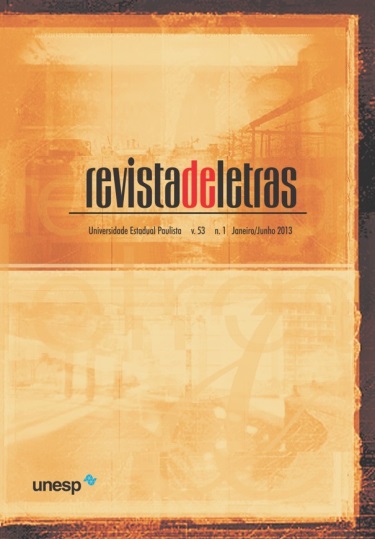The role of black women in the Hispanic-American historical novel
Keywords:
Hispanic-American historical novel, Identity, Slavery, Black main characters,Abstract
The attempt of (re)building an identity erased or rejected by the dominant cultural centers has always been present in the Latin-American intellectual’s minds. While some supported and followed the European lines of thought, others upheld the importance of “breaking free” both economically and intellectually from the Old World. Upon the beginning of the Latin American independence revolutions (late nineteenth century), thinker’s thesis introduced the problematic of identity: who are we, after all? What is our role in the new world configuration? Who must/can re(write) our history? Such anguish may be noticed in texts by intellectuals who worked to elaborate theories about a new reality – transculturalization, in-between, creolization, etc. This article will analyze novels whose main characters are black women, and the way they (re)tell historical facts from their point of enunciation, facing double prejudice. The novels analyzed are Jonatás y Manuela (1994), by Ecuadorian writer Argentina Chiriboga; Las esclavas del rincón (2001), by Uruguayan Susana Cabrera, and La isla bajo el mar (2010), by Chilean Isabel Allende. The writers utilize historical facts to introduce a different point of view, a history which started being told not about but by people who were part of the slavery system, one of the worst historical moments of the humanity.Downloads
Published
23/09/2014
Issue
Section
Contributions
License
Os manuscritos aceitos e publicados são de propriedade da Revista de Letras. Os originais deverão ser acompanhados de documentos de transferência de direitos autorais contendo assinatura dos autores.
É vedada a submissão integral ou parcial do manuscrito a qualquer outro periódico.
A responsabilidade do conteúdo dos artigos é exclusiva dos autores.
É vedada a tradução para outro idioma sem a autorização escrita do Editor ouvida a Comissão Editorial.

